Anticipating Fall 2020 at the College, Westminster Today decided to examine what to expect, tentatively, at the 15th Annual Hancock Symposium, Sept. 16-17.
The exciting event established in 2006 brings a variety of speakers and visitors to campus from all over the world. During the Symposium days, classes are suspended so that students, faculty and staff can pack the many informative sessions. Students in previous years learned about everything from forensic science to wildlife photography to what goes into producing a Hollywood reality series.
This year, the two-day speaker series that represents the best of a Westminster liberal arts education is themed “Vision & Values: Charting Our Paths to the Future.”
Curious what the Hancock Symposium 2020 theme means to students — who came up with the title themselves — and what campus can look forward to after COVID-19 quarantines are lifted, Westminster Today caught up with Dr. Jeremy Straughn, coordinator and co-chair of Hancock Symposium 2020. Straughn also directs Westminster’s Churchill Institute for Global Engagement.
Read further about why you should be excited to attend Hancock Symposium 2020:
What can students expect from Hancock Symposium 2020?
Every year, the Hancock Symposium is the time when our whole campus community pauses to reflect on a theme that embodies what makes us unique as a college. The fact that the two-day Symposium is an integral part of the curriculum sets it apart from other signature events throughout the year. The program is designed to expose students to advances in knowledge and practice from across the disciplines and to get them thinking critically about their own beliefs and aspirations. That will be true of this year’s Symposium, as well.
Since 2020 is an election year, we also think that incorporating a wide variety of perspectives is especially crucial. It’s not any one speaker or topic that sets the tone, but the critical dialog that exposure to diversity of views makes possible. An important part of that dialogue is to create opportunities for students to engage with participants on a smaller scale. As with the Breakthrough Symposium in 2019 and the Creativity & Innovation Symposium the year before, the 2020 Symposium will have a number of breakout sessions and special forums where students will have a chance to interact with Plenary and Executive speakers and other guests.
One difference next fall is that there will be an even larger share of early- and mid-career professionals on the roster, including several accomplished Westminster alumni who have graduated in the last 10 to 15 years. That we received these nominations probably has a lot to do with the theme of Hancock Symposium 2020: “Vision & Values: Charting Our Paths to the Future.” Audiences will find it exciting to hear how these and other speakers see ethical commitments as central to their life journeys and fields of achievement.
You’ve mentioned students came up with the theme of Symposium. What does this year’s theme mean to them?
Yes, this was a topic that emerged last fall from conversations with Westminster students, as well as faculty and staff. From the input they shared, we sensed a strong desire for reflection on the unique value of a liberal arts education as a resource for leadership, personal growth, community engagement and human progress. So, we got to work on a theme that could encapsulate the common thread running through all of these levels. Students we spoke with felt that that “Vision & Values” accomplished just that. As Cydney Funk, ’22, puts it, “The Hancock Symposium 2020 theme gets to the heart of Westminster College’s mission: finding a meaningful way to contribute to the global community … the theme encourages students to think about their actions in the context of human history and humanity’s future.”
What is it like coordinating this many speakers for a two-day event?
It’s exciting work for the faculty, students and staff on our Symposium committee. I’m especially honored to have Tim Riley of America’s National Churchill Museum serving as co-chair with me this year. Of course, one of our greatest assets for attracting Symposium speakers is Westminster’s reputation as a premier venue for distinguished lectures and public events. We’ve been fortunate that most of those we invite want to come here if they’re available.
Given this year’s theme, our goal from the beginning has been to secure speakers who could embody values like integrity, resiliency, perseverance and foresight and whose personal and professional achievements bring these into play. The program will include sessions that explore the theme of “Vision and Values” across a wide variety of fields, including astronomy, literature, helping professions, sustainability, entrepreneurship, law, national security and public health.
The last of these is, of course, an area that we expect to have particular resonance. Speakers in the public health field will be in a position to share experiences from the front lines in the fight against coronavirus and to give their assessment of its long-term impact on the shape of the world to come. At its broadest, the purpose of the Vision & Values Symposium is to help us envision pathways between the present and future, and that mission is even more timely and urgent now than we could have imagined.
What will students who aren’t into science want to know about NASA Chief Scientist Dr. James Green?
 Landing Jim Green as Plenary speaker was an exciting development. One of Jim’s great talents is his ability to communicate with audiences in a compelling way, regardless of their knowledge base, and the issues he’s agreed to cover are of vital importance to all of us. What do we learn about ourselves as a species by studying the cosmos and our place in it? Could we — and should we — build permanent colonies on the moon or even Mars? How close are we to answering the ancient question of whether there is intelligent life beyond planet earth? And what do these endeavors say about our basic values? Are they worth the investment of our tax dollars? What role can we expect the private sector to play in future ventures beyond planet Earth? Everyone who attends his lecture is in for a real treat!
Landing Jim Green as Plenary speaker was an exciting development. One of Jim’s great talents is his ability to communicate with audiences in a compelling way, regardless of their knowledge base, and the issues he’s agreed to cover are of vital importance to all of us. What do we learn about ourselves as a species by studying the cosmos and our place in it? Could we — and should we — build permanent colonies on the moon or even Mars? How close are we to answering the ancient question of whether there is intelligent life beyond planet earth? And what do these endeavors say about our basic values? Are they worth the investment of our tax dollars? What role can we expect the private sector to play in future ventures beyond planet Earth? Everyone who attends his lecture is in for a real treat!
Susannah Cahalan is a New York Times bestselling author that undoubtedly will be talking about her book Brain on Fire. What can students expect from the talk?
 Susannah’s Plenary session is really the perfect complement to Jim Green’s. In a way, you could say that her presentation will look through the other end of the telescope, at struggles that take place on the very human scale of an individual life. Her inspiring story of persistence and recovery after her misdiagnosis and involuntary confinement in a psychiatric ward will send a message of hope to anyone who has been through difficult times. That’s a message that not a few of our students will appreciate hearing.
Susannah’s Plenary session is really the perfect complement to Jim Green’s. In a way, you could say that her presentation will look through the other end of the telescope, at struggles that take place on the very human scale of an individual life. Her inspiring story of persistence and recovery after her misdiagnosis and involuntary confinement in a psychiatric ward will send a message of hope to anyone who has been through difficult times. That’s a message that not a few of our students will appreciate hearing.
On a concluding note, Straughn emphasizes that this year’s event will take into consideration appropriate social-distancing requirements and the well-being of all Hancock Symposium participants.
“Naturally, our first priority will be to ensure the health and safety of our students, faculty, staff and guest speakers,” Straughn explains. “We anticipate that most of our sessions will be live-streamed for the benefit of those who cannot attend in person, and we are fully equipped to deliver an exhilarating Symposium experience in virtual space, should that possibility become a necessity.”
The Hancock Symposium is funded in perpetuity by a generous gift from David Hancock, ’67 FIJI, of Kansas City, MO. For more information on Hancock Symposium, please contact Dr. Jeremy Straughn at Jeremy.Straughn@westminster-mo.edu or (573) 592-5258.
Sarah Rummel Backer is the Director of Media Relations and Senior Writer at Westminster College in Fulton, Missouri. A proud Westminster graduate, Sarah has more than 20 years of experience in marketing and strategic communications in the areas of higher education, medicine, agriculture, and the private business sector.

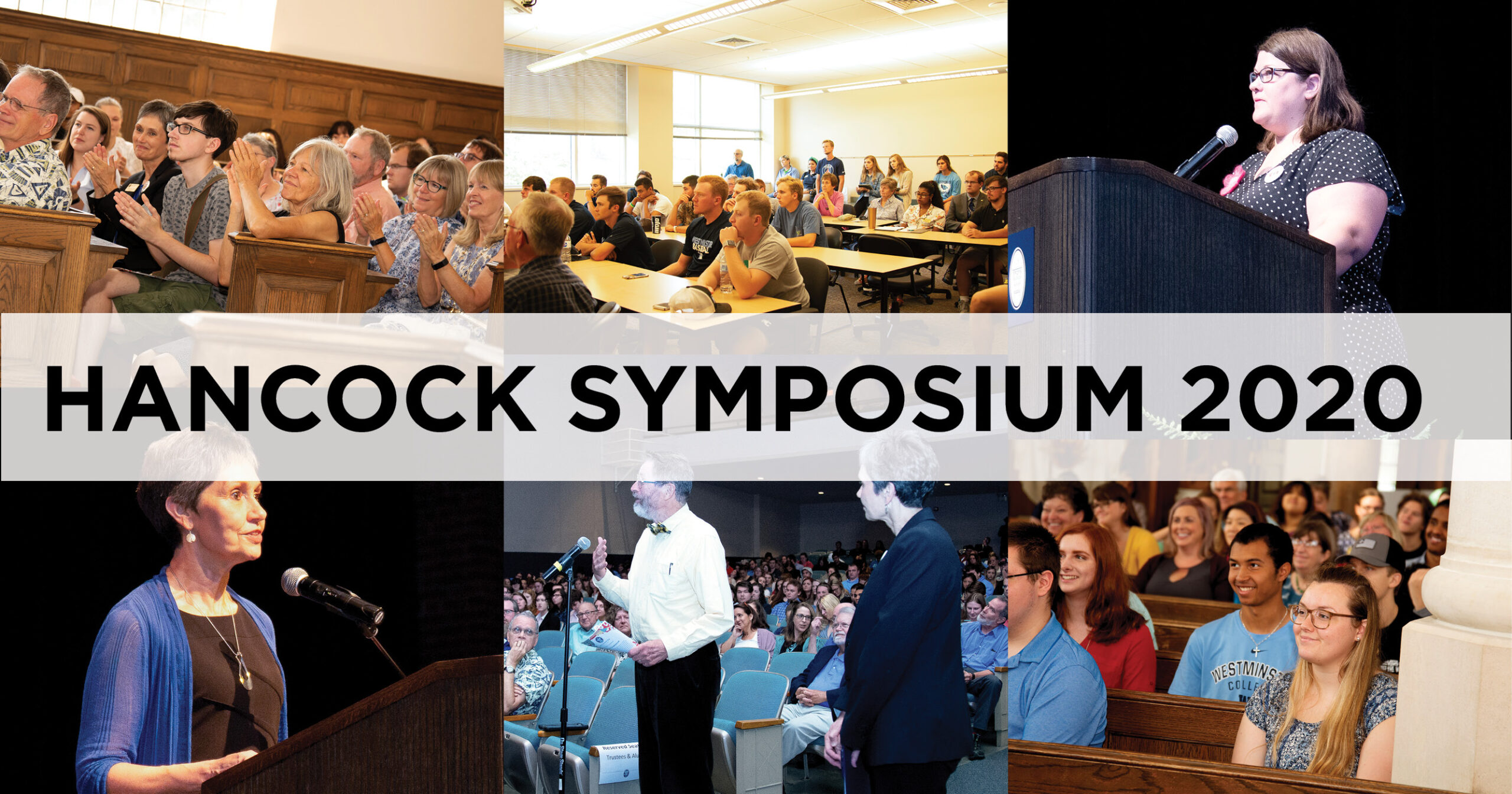

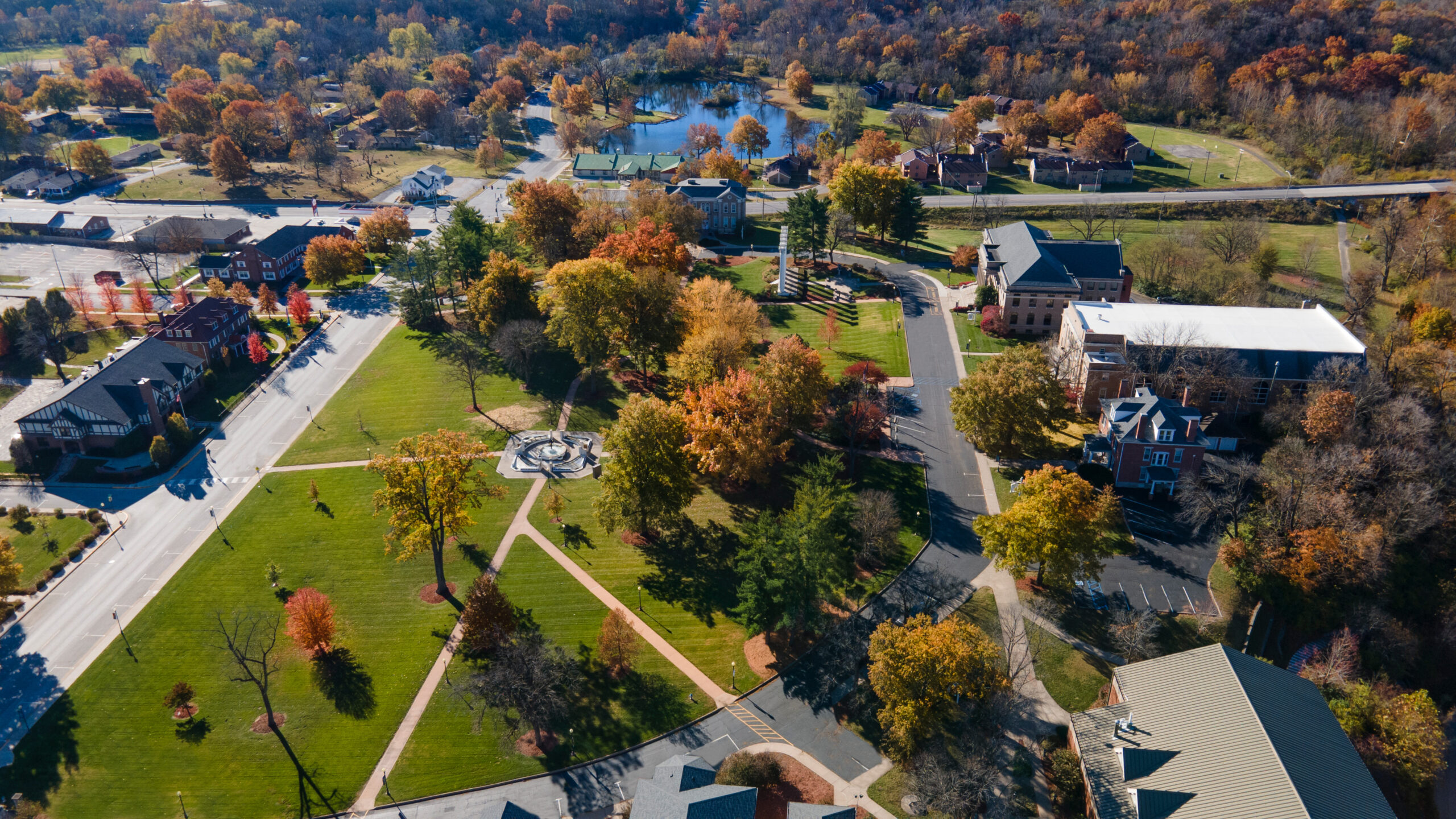
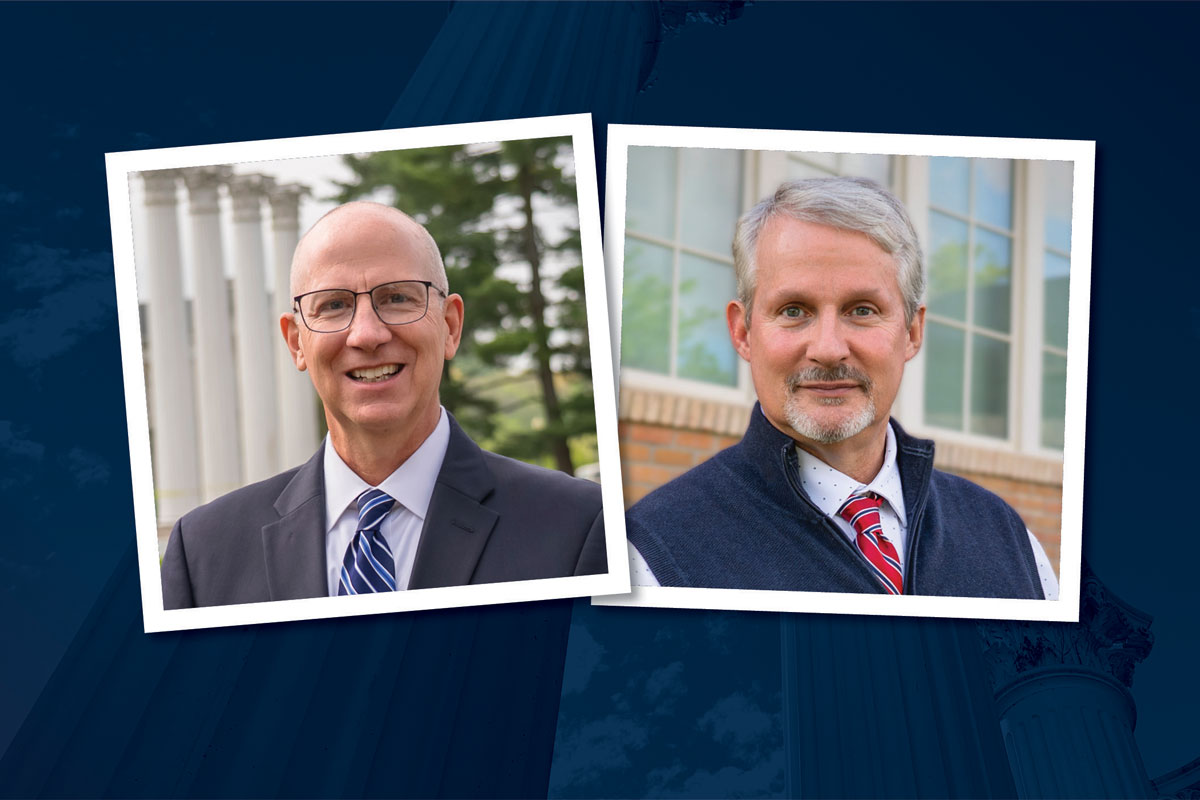
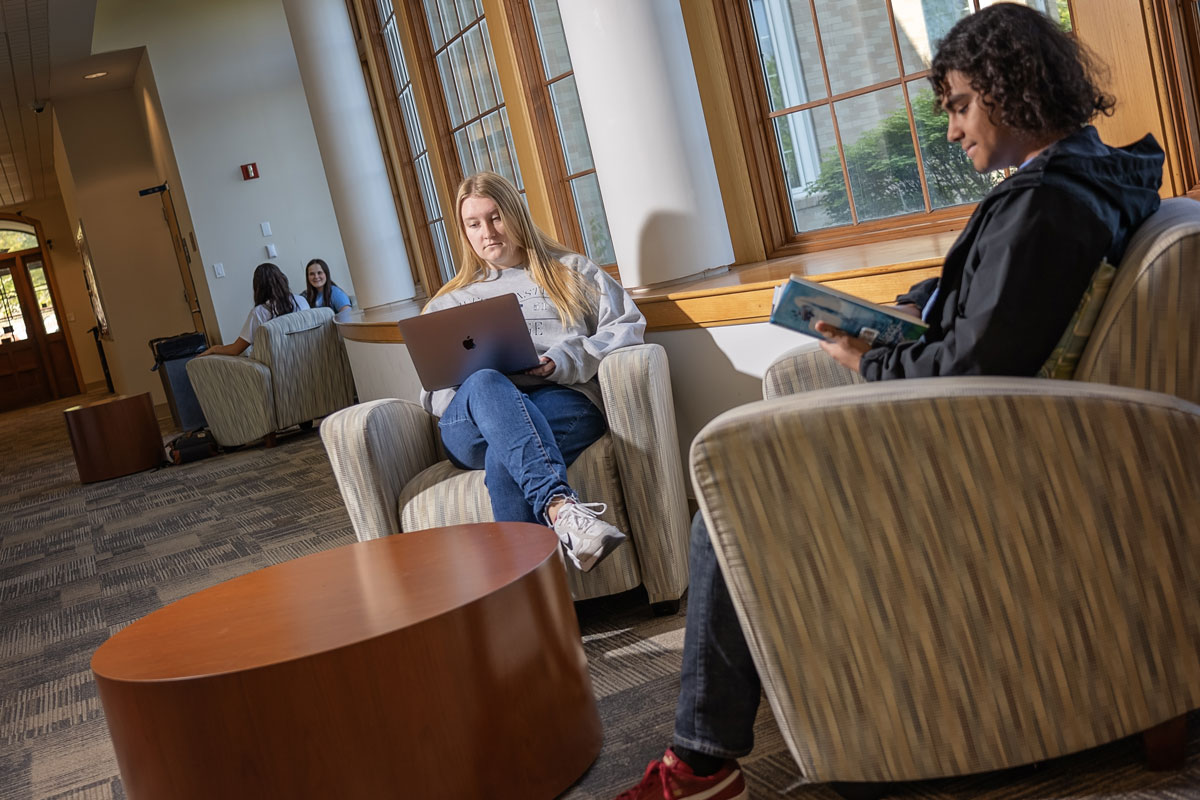
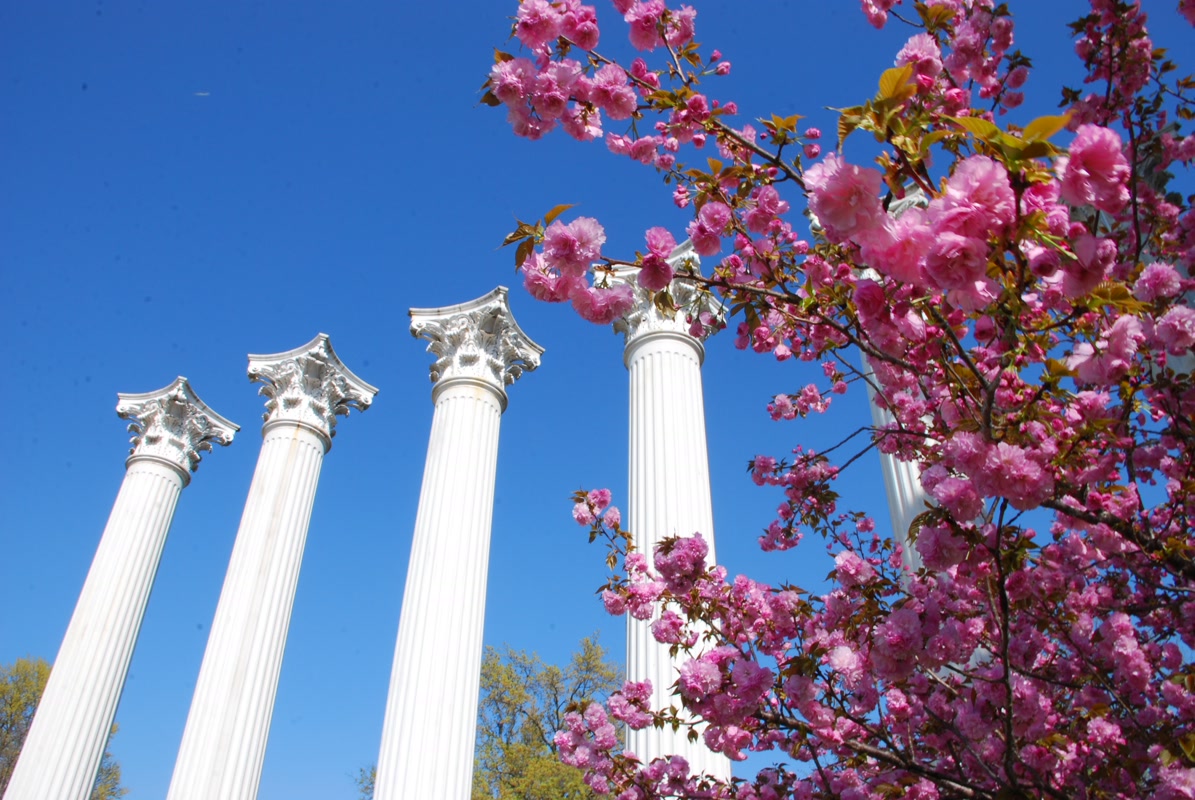
You must be logged in to post a comment.